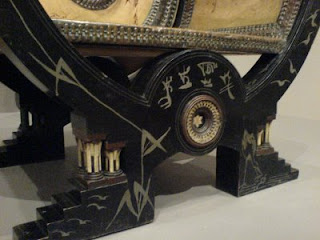The
Bifferboard is a tiny linux computer with low power consumption (1 Watt). It has ethernet and USB ports and some GPIO. It has been shown to run a choice of Linux distributions, I'm using Slackware. All this would make it ideal for Home Automation purposes but for the fact it doesn't have an onboard Real Time Clock (and it keeps really bad time), sure you can sync it off NTP, but then you need to leave your Internet up - a DSL modem and a router using ~20 Watts kind of spoils the low power aspect. I'd like to get a I2C RTC like the DS1307 and give that a try , I2C is
supported but I don't have that to hand right now. In the mean time I've
kludged up a solution using a disused Nokia phone and a Bluetooth dongle. Following
bifferos' Bluetooth instructions and also loading the openobex ,obexftp and dbus packages with slapt-get makes the phone accessible.
The following shell script is called by cron every second.(the btaddr of the phone can be found with a "hcitool scan").
#=cut here =========================
export PATH=/usr/local/sbin:/usr/sbin:/sbin:/usr/local/bin:/usr/bin:/bin:/
export TZ=EET-10EETDT,M10.1.0,M4.1.0/03:00:00Z
#change to tmpfs
cd /dev/shm
#get the time from the phone via bluetooth
obexftp -b btaddr_of_phone -g /telecom/rtc.txt
#reformat for date command
Z=$(cat rtc.txt)
TIMEDATE=$(echo $Z|cut --output-delimiter=: -c 10-11,12-13,14-15;\
echo $Z|cut -c 1-8)
#echo $TIMEDATE
date -s "$TIMEDATE"
#===================================
A lcd4linux compatible java app to use the phones screen via /dev/rfcomm0 is probably worth looking at as well, since the phone is there anyway.






























